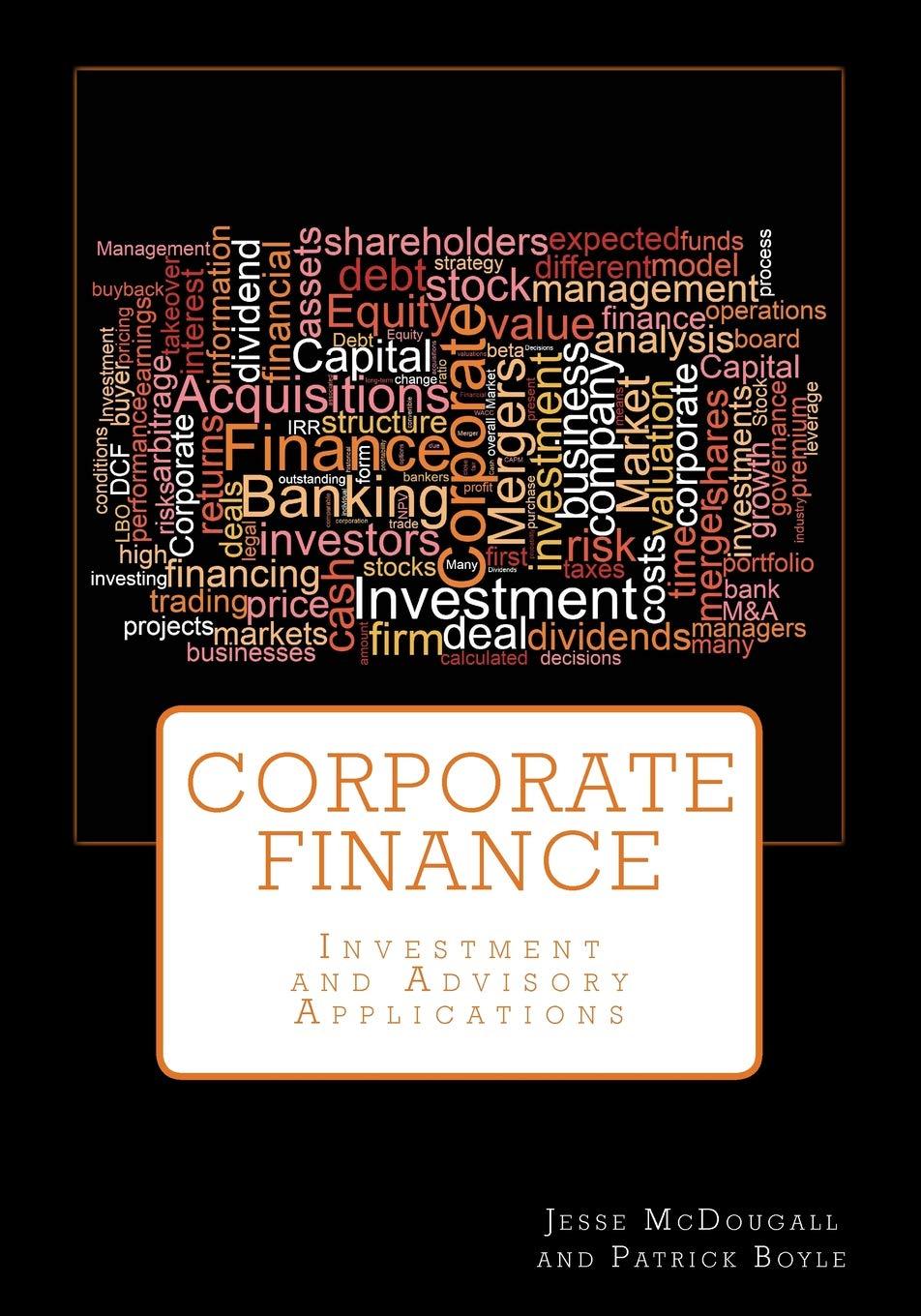Question
Firm B (Bidder) is considering a merger with Firm T (Target). The CFO in firm B has prepared the following pro forma Income statement for
Firm B (Bidder) is considering a merger with Firm T (Target). The CFO in firm B has prepared the following pro forma Income statement for the target firm assuming the merger takes place. The following income statement includes all synergistic benefits from the merger. If firm B buys firms T, an immediate dividend of $55 million would be paid from the target firm to the bidder firm. Stock in Firm B currently sells for $87 per share, and the company has 18 million shares outstanding. Firm T has 8 million shares outstanding. Both firms can borrow at an 8% interest rate. The CFO in firm B believes the current cost of capital for the bidding firm is 11%. The cost of capital for the target firm is 12.4%, and the cost of equity is 16.9%. In five years, the value of target firm is expected to be $235 million. You are asked to analyze the financial aspects of the potential merger and provide answers for the following questions.
1. suppose shareholders of the target firm agree to a merger price of $23. Should the bidding firm proceed with the merger?

2. What is the highest merger price per share that the bidder is willing to pay for the target?
Hint: The highest share price = Highest Cash Amount paid to target firm/#shares outstanding target firm. The highest Cash Amount paid to target firm is the total cash outflow in year 0 that completely offsets the PV of all future cash flows generated by the merger.

3. Suppose Bidder is unwilling to pay cash but will consider a stock exchange. What exchange ratio would make the merger terms equivalent to the merger price of $23?
Hint: exchange ratio = merger price per share/stock price post cash offer; stock price post cash offer = (MV of bidder firm + NPV)/#shares Bidder firm

4. What is the highest exchange ratio the bidder firm should be willing to pay and still undertake the merger?
Hint: The highest exchange ratio the bidder firm would accept is an exchange ratio that results in a zero NPV acquisition in which case the stock price of bidder firm=stock price post cash merger

Step by Step Solution
There are 3 Steps involved in it
Step: 1

Get Instant Access to Expert-Tailored Solutions
See step-by-step solutions with expert insights and AI powered tools for academic success
Step: 2

Step: 3

Ace Your Homework with AI
Get the answers you need in no time with our AI-driven, step-by-step assistance
Get Started


